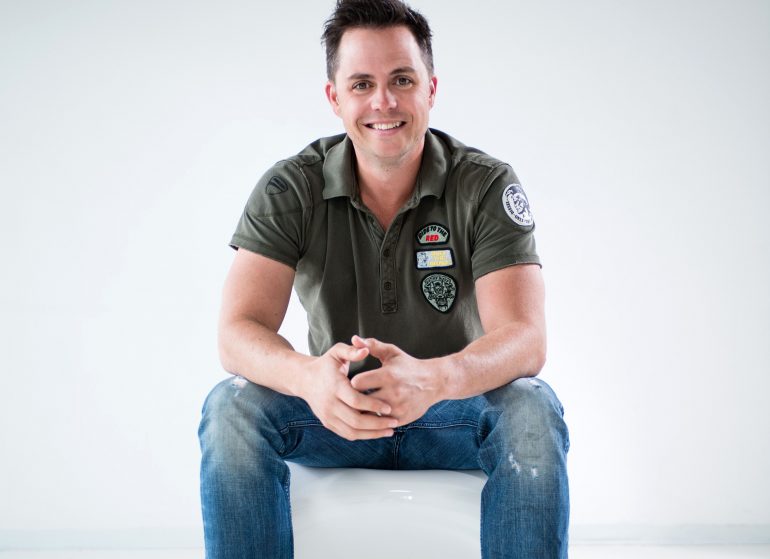You hear it all the time in startup pitches: “we’re the AirB&B of this” or “the TaskRabbit of that.” When a company name becomes shorthand, it signals a social trend. Similarly, the “Sharing Economy” is now a well accepted idea.
Yet, if you consider that the startup journey is one of discovery and trying to figure out what customers care about – or think about the huge challenges happening at scale in the enterprise like a recent AdAge article highlights, Big Food’s Big Problem: Consumers Don’t Trust Brands – maybe success in the future is going to be redefined by people choosing to lead a Caring Economy.
“Too many brands do a bad job of showing they care.”
– Andrew Reid
“Too many brands do a bad job of showing they care,” says Andrew Reid. The idea of companies that care was the focal point of our recent conversation. As founder and CPO of Vision Critical, Reid has a front row seat to the shifting relationship between brands and their customers.
“This whole customer revolution has arrived at our doorstep,” Reid said. “We did our first brand community in 2002, and have seen how empowered the consumer has become between then and now. Things like the role of reviews can kind of sink a company if you don’t like them. Just think about how much shopping for product has totally changed.
“Consumers are going to have their say, and it’s going to be amplified so much that you’re seeing more and more brands trying to figure out this new landscape. And they’re all going to have to change or die. You have the effect of the crowd impacting you in interesting ways. At the bottom line, if they don’t like the products and services you have that’s going to hurt in a significant way.”
Reid went on to say that “we also really don’t know right now how much that’s growing and what kind of effect crowd advocacy is going to have in the future. At the top end, they can actually help you be much more successful if you harness that power the right way.”
With a 15 year lens on business, Reid knows how quickly things can change. “Gone are the days of imagining some amazing new concept,” Reid says. “There a very few new innovations where one smart person at the top thinks about them. I think with a lot of categories it comes down to that individual consumer who lives, breathes and eats your product every day is going to be the person that helps you be successful. They’ll be the ones who understand and help you blaze that trail towards the future.”
“Engagement needs to be more than giving a coupon away, offering up a contest, or asking for a tweet or like,” Reid continued. “Life’s not fake. Parts of life are ugly. We want to facilitate open and honest conversations, and can you do that in a way that makes it more real, makes people care more about you as a brand. How can you develop trust bonds? This is one of the big questions that Reid is asking of himself and his team.
Maple Syrup Mafia Vancouver Style @invoker @JeffBooth @KentThexton @reidandrew #sweet pic.twitter.com/CKMDeFp3tt
— John Ruffolo (@ruffoloj) May 21, 2015
I couldn’t have a conversation with one of the “Maple Syrup Mafia” and not touch on Shopify’s recent IPO, the potential of Hootsuite following suit, and what’s ahead for Vision Critical. Reid said that “your tech has to be in a really good place, you have to have a go-to-market team that’s aggressive and genuinely excited, and you have to have a delivery mechanism that really can deliver, and I feel like those three legs of the stool are well set here. We’re looking at market conditions and trying to make sure that we’re setting ourselves up to win. I think we’ll see in the next few quarters what winning means to VC.”
“Will technology help us? Can all of this come together and help lead us to more genuine engagement versus how it’s done today?”
We also talked more about the relationship between technology and our human experience, with Reid suggesting that he’s “sad about how connected we are, and how impossible it is to be unconnected.” It was obvious Reid wasn’t yearning for the ‘good old days’, or suggesting that our connectedness is ruining us. “Besides, I definitely take the abundance view of technology all of the time. We are better off because our smartphones.”
But Reid did subscribe to the notion that despite how much technology continues to change, humans haven’t really changed. “It’s more about technology needing to get better at adapting to who we are.”
“Human relationships let you have this great dance between using your memory, using the profiles of people in our lives that we’ve collected, having conversations that run from serious to frivolous, and how you interact with people. Will technology get better at that in time? Will technology help us? Will marketing and how you’re actually communicating with people, create an opportunity to mirror that kind of relationship? Can all of this come together and help lead us to more genuine engagement versus how it’s done today?” Good leaders know how to ask good questions, and these are one more of us in tech need keep asking, too.
Action, not words, is what it will take for companies to start leading us to the Caring Economy. When it comes to acting like a human being, in terms of what they are asking from the customer, how they are asking it, and when they are asking it, Reid is on the mark saying, “too many brands are like bad dates, they just try to rush to the end.” Scoring doesn’t equal winning, and it’s sure a far cry from caring.


